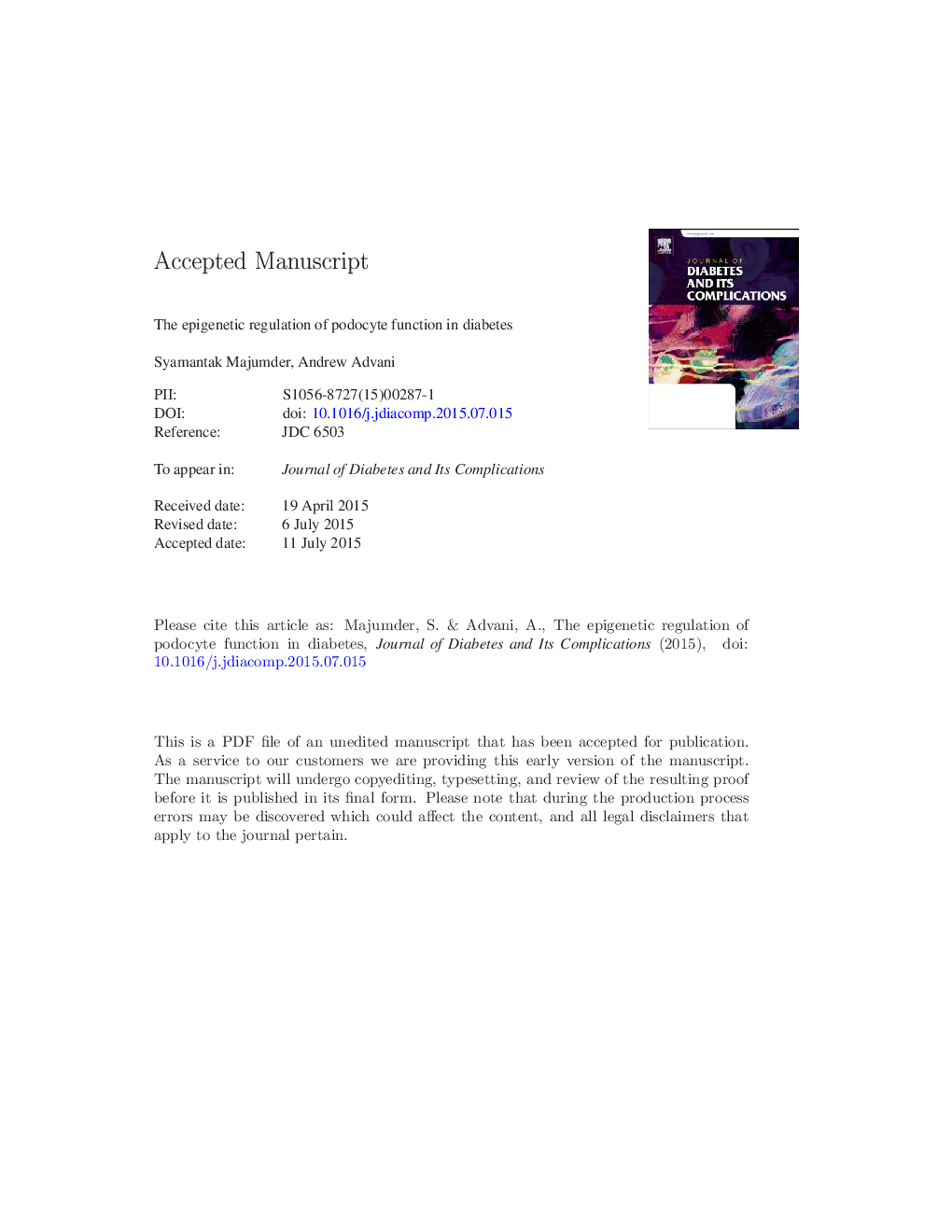| Article ID | Journal | Published Year | Pages | File Type |
|---|---|---|---|---|
| 5902403 | Journal of Diabetes and its Complications | 2015 | 37 Pages |
Abstract
Chronic hyperglycemia early in the course of diabetes confers a sustained increase in the risk of complications development. In recent years, efforts to understand the molecular basis for this “metabolic memory” have focused on epigenetic mechanisms as a means by which transient high glucose can cause persistent and propagated changes in cell function. For instance, in vascular endothelial cells, smooth muscle cells and peripheral blood cells, temporary exposure to high glucose causes changes in epigenetic marks that promote a shift towards a pro-inflammatory phenotype. However, the influence of epigenetic processes in complications development extends beyond their contribution to metabolic memory. Podocytes, for example, are terminally differentiated cells of the renal glomerulus whose injury is a major contributor to the pathogenesis of nephropathy. Over recent months, several reports have emerged describing the essential actions of histone-modifying enzymes and DNA methylation patterns (the two principal epigenetic mechanisms) in maintaining podocyte integrity, especially under diabetic conditions. Here, we review the known and potential role of epigenetic processes within podocytes, focusing on the evidence linking these processes to oxidative stress, crosstalk with tubule cells, autophagy and slit-pore protein expression. Whether podocytes themselves exhibit a metabolic memory awaits to be seen.
Related Topics
Life Sciences
Biochemistry, Genetics and Molecular Biology
Endocrinology
Authors
Syamantak Majumder, Andrew Advani,
